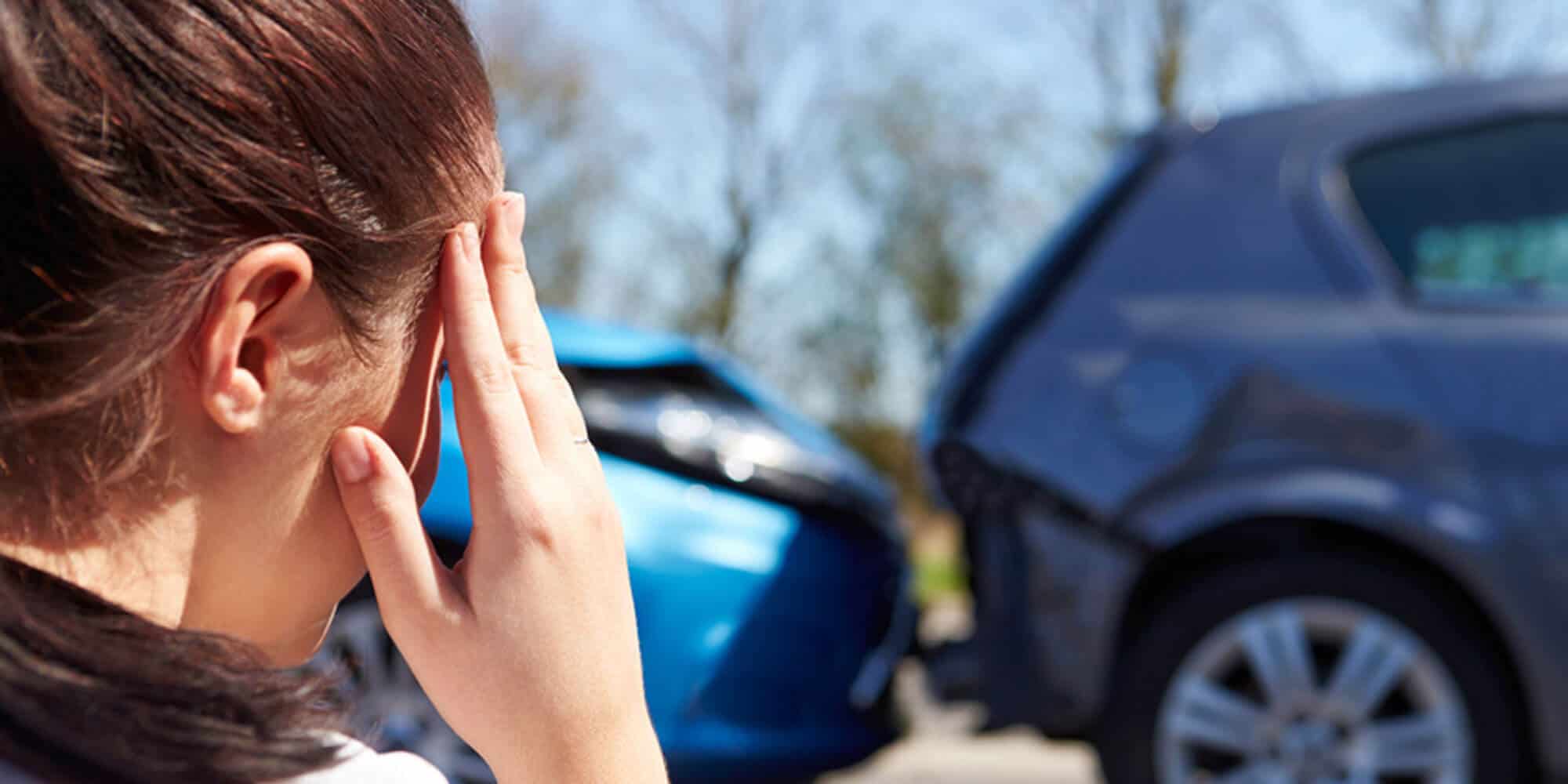Carlin Law Office Services
Wrongful Death
We know all too well, the sudden death of a loved one causes unimaginable grief, which the victim’s friends and family will carry with them for the rest of their lives. Learning to live the rest of your life without a husband, a wife, a child or a parent can seem like an insurmountable challenge, one which nobody can really relate to unless they have experienced such a loss.
To make matters worse, when a loved one’s death was wrongfully caused by the negligent, reckless or intentional acts of another, the surviving family members may be left with financial hardships. A wrongful death action can be brought by the victim’s surviving heirs against the wrong-doer to recover funeral and medical expenses, any lost wages, loss of future earnings of the deceased person, and loss of companionship and services. Although no amount of money can compensate for the incredible loss the victim’s loved ones are experiencing, obtaining monetary compensation will ease the financial stress and anxiety which survivors experience as a result of added expenses or a decrease in familial income.
Medical Malpractice
What is medical malpractice?
Medical malpractice, sometimes referred to as medical negligence, occurs when a health care provider violates the governing standard of care when providing treatment to a patient, causing the patient to suffer an injury or death. Medical malpractice can result from an action taken by the medical practitioner, or by the failure to take a medically appropriate action. Examples of medical malpractice include:
- Misdiagnosis of, or failure to diagnose, a disease or medical condition
- Failure to provide appropriate treatment for a medical condition
- Unreasonable delay in treating a diagnosed medical condition
- Lack of informed consent prior to proceeding with a medical or surgical procedure
- Surgical injuries
- Obstetric/labor and delivery injuries
- Improperly prescribed or dispensed medications
Emergency Room Malpractice
Hospital emergency rooms are visited by nearly 100 million people per year in the United States. The enormous volume of patients in critical condition, combined with a busy staff and a constant sense of urgency can result in medical errors. According to a report from the Journal of the American Medical Association, more than 225,000 people die each year as a result of medical malpractice. Nearly half of those deaths are because of emergency room errors. While the emergency room is a highly demanding environment, it is still essential that hospitals and emergency room professionals provide a high standard of medical care to their patients. If this standard of care is breached and injury or death results, such negligence may be grounds for a medical malpractice lawsuit.
Patients presented to a hospital emergency department are first evaluated by triage personnel, usually a registered nurse. This initial evaluation will usually determine where and when the patient will be seen. Patients evaluated as having a minor injury or condition, will likely be referred to the fast track or other similar area of the emergency department. If the triage nurse wrongly assesses the patient, there may be a significant delay in diagnosis and treatment. In the fast track section of the emergency department, patients are typically seen on a “first come, first served” basis. Larger emergency departments may staff the fast track area with a physician assistant or nurse practitioner, rather than a physician, although physicians also work in the fast track area.
A large percentage of all medical malpractice related injuries occur in the emergency room. Medical malpractice or medical negligence occurs when a doctor, hospital, nurse or healthcare provider fails to give care that meets the required standard of care. Mistakes that are made in emergency rooms can be devastating. Too often, people are sent home from the emergency room when in fact further medical care should have been administered. If you or a loved one has been injured by an emergency room error, we can help.
Spinal Cord Injury
The Carlin Law Firm offers sound legal guidance, support and aggressive representation to accident victims who have suffered a spinal cord injury as a result of another's negligence, including:
- Paralysis, paraplegia and quadriplegia
- Spinal cord impingement or other nerve damage resulting in loss of function or chronic neurogenic pain
- Spinal cord injury resulting in chronic pain, also known as reflex sympathetic dystrophy (RSD) or complex regional pain syndrome (CRPS)
- Bulging, slipped or herniated disc with damage to the nerves of the spinal cord
- Aggravation of pre-existing degenerative disc disease
- Fractured spine or other damage to lumbar, thoracic or cervical vertebrae
Personal Injury Law
The Carlin Law Firm is dedicated to easing the trauma of personal injuries by helping victims recover damages for medical expenses, lost income, and disability benefits. We have recovered millions in verdicts and settlements for victims and families with personal injury insurance claims in and around Iowa. Our case results continue to be the number one reason clients call or email us to handle their serious injuries and accidents.
Personal injury broadly describes any injury to the body, mind, or psyche caused by another’s negligence. A lawsuit brought in tort alleges the negligent party owed some duty of care to the plaintiff, breached that duty, and as a result, proximately caused the plaintiff’s injury. The liable party must pay damages for injuries arising out of her tortious conduct, including the plaintiff’s medical bills, lost wages, and other economic damage. Depending on the type of injury, the plaintiff can also allege damage to his reputation or mental well-being, recovering for pain, suffering, and emotional distress. Family members may also bring a lawsuit for the wrongful or accidental death of a loved one, alleging financial and emotional harm. Defendants who have exhibited especially reprehensible behavior are liable for punitive damages, court costs, and attorney’s fees. General liability insurance covers most personal injuries, allowing victims to recover compensatory damages flowing from the accident.
Any of the following examples alone, or in combination, may give rise to a personal injury claim:
- Car accident
- Bus accident
- Truck accident
- Motorcycle accident
- Bicycle accident
- Construction site accident
- Danger on property such as poor lighting or lack of warning signs
- Slip and fall
- DUI accident
- Medical Malpractice
- Defective products
- Dog bite
Brain Injury
Have you suffered a traumatic brain injury (TBI)?
Brain injury can range in severity from mild concussion to permanent brain damage resulting in severe mental and physical deficits. The exact nature and consequences of a brain injury are often difficult to determine until days, weeks or months after the accident. Symptoms of brain injury may include:
- Disorientation with or without a loss of consciousness
- Memory loss (i.e. amnesia)
- Depression and anxiety
- Changes in behavior
- Cognitive deficits and damage to the frontal lobe of the brain
- Physical disability and damage to the brain stem
- Coma and persistent vegetative state (PVS)
Motor Vehicle Accidents
Were you injured in a car accident due to someone else’s carelessness or recklessness?
Motor vehicle accidents can cause debilitating physical injuries and leave lasting psychological effects. According to the National Highway Traffic Safety Administration over 2 million people were injured in traffic accidents across the country in 2007. Due to the inherent risk involved in operating a car or other motor vehicle, most drivers implement safety measures in their daily routines – we buckle every seatbelt, we take the time to strap our children into their car seats, and try to abide by motor vehicle laws. However, even if we take every precaution and buckle every seat belt, we cannot govern the actions of others on the roads. Studies show that the majority of accidents are caused by a driver’s carelessness, recklessness, inattention or neglect. If you or someone you loved was injured, or killed, in an auto accident that was caused by another driver, you may be experiencing physical pain, mental anguish, and financial hardship. You can’t undo what has happened to you, but you can work toward receiving compensation for your injuries and suffering and start to reclaim your life. Don’t try to handle the consequences of being involved in a serious accident alone. Our office can help you secure the financial help you both need and deserve.
Our client services for motor vehicle accidents include:
- Car accidents
- Private and city Bus accidents
- 15-passenger van rollover accidents and SUV rollover accidents
- Semi-truck accidents
- Boating accidents
- Motorcycle accidents
- Commercial truck accidents including, 18-wheeler accidents and big rig accidents
- Plane Crash
- Pain and suffering
- Past lost wages
- Future earnings
- Medical bills related to the accident
- Pharmacy costs
- Physical therapy
- Transportation
- Loss of enjoyment of life
- Loss of relationship with your spouse
- Value of lost ability to participate in activities
Truck Accidents
A trailer is a “large transport conveyance designed to be pulled by a truck or tractor”. Companies that employ trucks to transport goods within or across state lines are often known as “commercial motor carriers”. The size and impact of the vehicles they employ cause some of the most devastating accidents on the road. In 2010, over 500,000 large trucks and commercial vehicles were involved in accidents, injuring over 100,000 people in the United States. Over 5,000 people died in these collisions, up from 3,200 in 2009. The fatalities will continue to rise as the number of trucks and tractor-trailers are expected to increase by 20% in 2012.
Iowa and federal law regulate the motor truck industry and the carriers who lease trucks for their business operations. In the past, carriers employed “fly by night” truckers as independent contractors, resulting in all culpable parties—carriers, lessors, owners, drivers, and insurers—shirking responsibility for motor accidents. Now, state and federal regulations make carriers “vicariously liable” as a matter of law for the negligent conduct of the vehicle’s owners/operators and drivers. The Motor Carrier Act and Interstate Commerce Carrier Act require motor carriers to have surety bonds or insurance policies “sufficient to pay any final judgment recovered” against them for bodily injuries or death resulting from the “negligent operation, maintenance, or use” of the motor vehicle. Carriers can no longer shift financial responsibility to “independent” drivers, owners, or operators who were negligent on the job.
Motorcycle Accidents
Every year over 50,000 motorcyclists are injured and nearly 2,000 of those are killed in traffic accidents. A large percentage of these injuries and deaths could have been avoided if helmets were worn by the riders and passengers. Statistics show in 2001, there were almost 3,200 deaths and 60,000 injuries due to motorcycle accidents. Of those injured, 7,000 were between 15 and 20, and of those killed, 36% were between 16 and 29. Male riders made up 90% of those killed. In comparison to drivers and passengers in a car, motorcyclists are 21 times more likely to die in a crash and 4 times more like to be injured. Motorcycles account for less than 2% of registered vehicles in the United States, but weigh in at 85% of all traffic deaths. Speeding was the factor in 39% of fatal motorcycle crashes in 2001. That is about twice the amount for drivers of cars and trucks.
Alcohol-related motorcycle accidents were 37% higher than for drivers of cars and trucks. The simple act of wearing a helmet reduces the rider’s risk of a deadly accident by 29%. In addition, it reduces the chance of a brain injury by 67%. Even though there is considerable documentation on the effectiveness of wearing a helmet, many riders still choose not to wear them. This is especially true when the state laws don’t require their use. Studies show that between 34% and 54% of riders actually wear a helmet. But in states that require their use, 98% of motorcyclists wear them. Unfortunately, less than half of the U.S. requires the use of a helmet.
Motorcyclists are required to abide by the same speed limits as other vehicles on the road. They are expected to drive at a speed that is reasonable and prudent. As in all traffic accidents, it is essential to preserve all evidence and investigate the accident scene; in addition, expert witnesses and physicians need to completely evaluate all injuries. Our initial consultation is free of charge, and if we agree to accept your case, we will work on a contingent fee basis, which means we get paid for our services only if there is a monetary award or recovery of funds. Don't delay! You may have a valid claim and be entitled to compensation for your injuries, but a lawsuit must be filed before the statute of limitations expires.
Drunk Driving Accidents
When an intoxicated driver gets behind the wheel of a motor vehicle, they are making a choice to put the people around them in danger. Driving under the influence (DUI) is a term used to describe drivers who are impaired by either alcohol or drugs, whereas driving while intoxicated (DWI) is used to specifically refer to drivers under the influence of alcohol. Drunk driving accidents have become such a widespread problem that many states have adopted strict DUI laws and sentencing guidelines. Given the overwhelming potential of these accidents to cause needless harm, including catastrophic injuries and wrongful death, anyone who makes the careless decision to drive drunk must be held accountable for their actions and the harm they cause.
Although our criminal justice system establishes consequences to penalize drunk drivers, they do not award DUI accident victims compensation for the damages they suffered. By filing a personal injury claim in a civil court, injured victims and families will be eligible to recover any physical, emotional, and / or financial damages they suffered. If you or your loved one has suffered injuries in a car accident caused by a drunk driver, then allow our firm to fight on your behalf to obtain justice and the compensation you deserve.
These statistics serve to highlight the unfortunate fact that, even with stringent DUI laws in place, many drivers continue to make the negligent decision to drive under the influence. As any reasonable person should be aware of the illegality of drunk driving, as well as its incredible potential to cause harm, it is clear that DUI accidents are preventable and that drunk drivers should be held fully liable for the damages they cause.
Recovering Compensation in a DUI Accident Case
Our legal team has become adept at guiding DUI accident victims through the legal process and toward the successful resolutions they need. Our firm can compile data from the police report, witness testimonies, and several other sources to build the strongest possible case on your behalf, demonstrating how the driver's impairment led directly to your injuries or your loved one's death. Depending on the circumstances of your case, you may be able to recover compensation for the following damages:
- Medical expenses, including past and future costs of medical care
- Lost income and future earnings
- Physical and emotional pain and suffering, as well as grief suffered by family members, in some states, in the event of a wrongful death
- Property damage
- Loss of consortium
Premises Liability
The Carlin Law Firm is dedicated to assisting individuals who have been injured due to the negligent maintenance or operation of property. Whether you have been harmed by a dangerous obstruction or slip and fall, we can evaluate your case to identify liable parties and recover compensation for medical expenses, lost income, and other costs arising from your injury.
Premises liability refers to the owner or occupier’s legal responsibility to persons injured on the property. This is a burgeoning area of law because it implicates not only business entities and commercial owners, but residential property as well. Apartments, houses, and condominium complexes are common sites of slips, trips, and falls. But lawsuits against businesses outnumber those against private parties. Wal-Mart, for example, is the largest retailer in the world. More than 100 million customers walk through its 3,000 stores each week. Of these customers, approximately 1,000 are injured each day, slipping on the floor or being hit by falling merchandise. Although most of these incidents go unreported, the retailer sees an average of 3,550 suits each year. Indeed, the number of premises liability suits has increased, along with the frequency of prevailing plaintiffs and median compensatory awards.
- In determining premises liability for an owner, courts consider the following factors:
- Creation or allowance of a dangerous or defective condition to exist on the premises
- Failure to properly maintain or manage the premises to avoid exposing people to an unreasonable risk of harm
- Creation of natural or artificial conditions on the premises that result in injury
- Failure to adequately inspect the property for potential dangers
- Failure to warn people of dangers the owner knew or should have known were present whether the party injured was an invitee, guest, or trespasser.
- Failure to provide adequate security to invitees or guests in an establishment serving alcohol.



